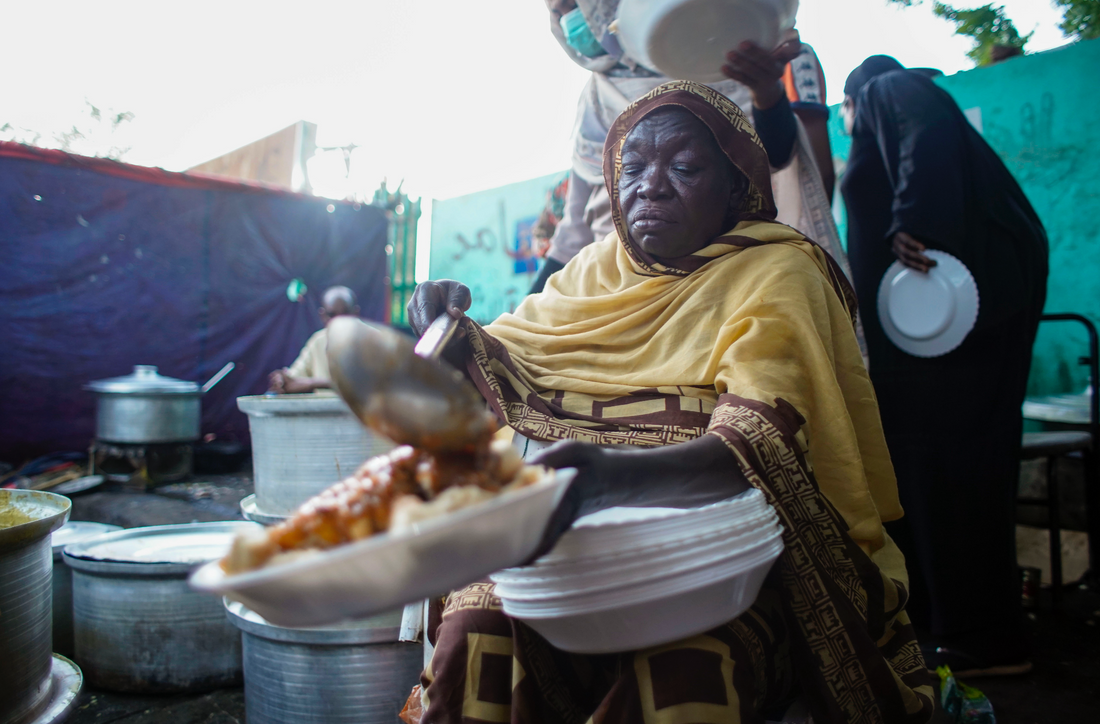
The Sudanese Kitchen : From Nomadic Roots to Modern Tables
Share
When we think of global cuisine, we usually imagine modern restaurants mixing international flavours. But Sudanese cuisine has been creating something entirely unique for centuries, long before it became trendy. Author and artist Omer Al Tijani, who spent over a decade documenting these culinary stories in his cookbook " The Sudanese Kitchen," reveals how Sudan's position at the crossroads of Africa and the Middle East created something remarkable: a cuisine that adapts and thrives through every cultural shift.
From dishes born from traditional ways of life to modern interpretations served around the world, Sudanese food is more than recipes—it's a testament to resilience, community, and the art of making something beautiful from constant change.
What makes Sudanese cuisine unique from other African cuisines?
Omer: " Sudanese cuisine isn't a single cuisine, it's actually a remarkable blend that developed over centuries at the crossroads of Africa and the Middle East. What sets it apart is how it tells the story of cultural adaptation and resilience. Unlike cuisines that evolved gradually, Sudanese food was shaped by massive cultural shifts, often imposed on the country, creating something that predates our modern understanding of unique cuisine by hundreds of years."
What are the essential dishes every food lover should know about?
Omer: " The heart of Sudanese cuisine lies in Asida and Mullah. Asida is a sorghum or millet based dumpling that serves as the starchy base, while mullah is the flavourful stew served alongside it. These dishes embody practical wisdom designed to be portable yet nourishing, simple to assemble yet requiring technique to perfect. They represent the communal spirit of Sudanese culture, where sharing resources and cooking together forms the foundation of social life."
How has globalisation affected traditional Sudanese cooking?
Omer: " Rather than destroying tradition, globalisation represents just the latest chapter in Sudan's long history of culinary adaptation. Today, you might find mini pizzas at Sudanese weddings which might surprise purists, but actually demonstrates the culture's remarkable ability to embrace what works whilst maintaining its authentic heart. Each era has brought new ingredients and techniques, and Sudanese cooks have consistently refined and elevated dishes through generations of wisdom."

What's the authentic Sudanese cooking experience like?
Omer: " The complete Sudanese cooking experience goes far beyond just preparing food, it's a cultural ritual. "The ritual involves preparing a lamb at the family home. Almost all parts of the animal are honoured and utilised, with portions shared generously with the community or preserved for later use, before being transformed into a wide variety of traditional dishes.It's cooking as community building, connecting people to each other and to generations of tradition."
Where can someone experience authentic Sudanese cuisine?
Omer: " For the most authentic experience, attend a Sudanese wedding or celebration where you'll find live music, abundant food, stunning fashion, and welcoming people to talk with. In London, you can visit : Toteil in Acton or King of Akaware in Westbourne Green, or a family-run restaurant called Napata in Utrech.
Success stories like Z zoul cafe in San Francisco show how Sudanese cuisine is finding its place in the global food scene whilst maintaining its authentic character."
What does the future hold for Sudanese cuisine?
Omer: " Despite current challenges facing Sudan, there's hope for greater international appreciation of this remarkable cuisine. The goal is to see Sudanese entrepreneurs develop sustainable financial and marketing strategies that serve their communities whilst producing consistently high-quality food. Success stories around the world prove that authentic Sudanese cuisine can thrive globally whilst honouring its roots."
How can home cooks begin exploring Sudanese flavours?

Omer: " Start with understanding that Sudanese cuisine centres on community and sharing. Begin with the foundational dishes like Asida and Mullah these one-pot dishes may seem straightforward, but require technique to achieve the correct textures and flavours. Omer's cookbook " The Sudanese Kitchen" offers an excellent introduction, though as he notes, "we're just scratching the surface" of this rich culinary tradition."
Pictures : from The Sudanese Kitchen
Useful links :
Discover The Sudanese Kitchen
Want to dive deeper into Sudanese cuisine? Check Omer website for more recipes https://www.sudanese.kitchen
